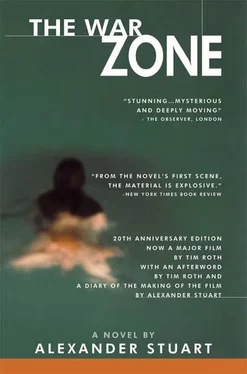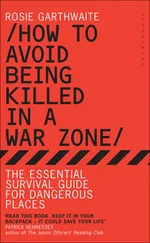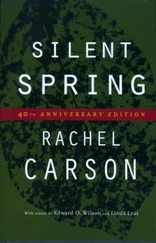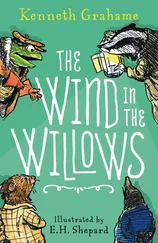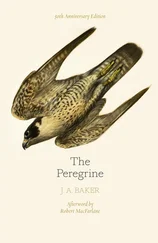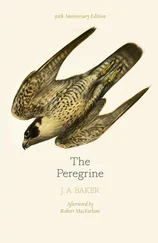‘What?’ I hear my own voice, muffled, a surprise. I don’t know what I’m saying.
Her mouth moves again. Sadly, not on me. She shouts, ‘Feeling sorry for yourself then?’
‘Not very.’
She doesn’t switch off the vacuum cleaner. I don’t turn off the music. ‘I hear you had yourselves a party.’
‘Oh, yeah?’
‘You didn’t invite me.’
She stands, arching her neck to get rid of an ache, eyes tired, no longer looking at me. I keep the headset off my ears for a moment, but she says nothing else, sticks the vacuum head under the bed, knocking the dulled metal side quite aggressively, breathing over me a dry waft of stale cigarettes, her eyes meeting mine only once, no message I can discern. If she’s my invention, she doesn’t know it.
•
And where’s Jessie in all of this? How does she take to her incarceration? Like a bat to water, like salvation to a crime. She switches into a different mode, using the time available to even things up with Mum, sticking and unsticking an endless flow of disposable nappies, singing to Jack to knock him out, generally being more companionable than she has been of late, though not so much that it’s obvious.
I watch her with Dad, to see if it’s a cover, to see if they’re just faking this punishment – she’s taking it too well, there must be more to it. But they keep their distance, not showing any particular resentment or interest, no sustained, message-laden eye contact that I can catch, no sudden flare-ups, not even much body contact, which in itself is unusual for Jessie. She seems suddenly domesticated, teenage mum time again, like one of those awful ex-punk blonds (not that Jessie could ever be blond) who discover family life. Jessie has a side to her that could almost settle for a Chelsea existence, married to a stockbroker or some other wimp criminal from the City, except that I think she’d chain him to the bathtaps after three weeks and go mad after four. The domesticity is a pose and it’s one I can find only two motives for.
‘You’re either feeling guilty or you’re groveling and it’s a sickening sight,’ I tell her in one of my more foul-tempered moments locked inside the cottage’s storm-blackened gloom.
But Jessie is unreachable. ‘You’re not handling this well,’ she says. ‘It’s like pain. Go with it. Enjoy the punishment. You have to want denial. Otherwise it’s boring.’
The ultimate sin. Nothing is boring for Jessie, she won’t allow it. I don’t even know if she cares about not seeing Nick or if pretending she doesn’t is a way of double-thinking Dad, making him feel more uneasy than if she were fretting over the situation. If Dad is what’s important to her, she’s not showing it – unless she is by not showing it. Maybe she’s sucking up to Mum to freak him out? I don’t know. I just know she is not my invention. Lucy, I might have managed, but Jessie, no way. I couldn’t invent her. She cannot be another part of me because I haven’t got it, I don’t have her cool, it’s all head-on confrontation for me – but Jessie, life bends to meet Jessie’s will, life is something she strokes until it comes.
Day five of the life sentence. Late afternoon. It’s rained all day but suddenly the sun has come out and it’s hot, so Jessie and I have set ourselves up outside. She’s got her ghetto blaster playing endless bloody reggae and I’ve erected three deckchairs because Mum is going to join us, we all want reconciliation now. Dad is inside, intermittently screaming down the telephone at his London office, barricaded inside the living room against what is apparently a real crisis, as opposed to the crises which occur once a month. He still loves it, fuck him. He loves the attention, even if it comes as trouble.
Jack is wailing upstairs and Jessie has gone to sort him out, all part of the war effort. Mum flaps down the kitchen step, having failed to find the other wooden sandal she’s been searching for, and sits next to me, impressed to find me reading.
‘What’s it about?’
‘It’s about death. Drilling holes in your head.’ Actually it’s about cricket, but even that seems like a form of death right now.
‘Why don’t you read the books I buy you?’ Mum sips the drink she has brought out with her. I know there is nothing I could read that would shock her. I bought The Story of O when I was ten, but her only reaction was that I’d find it too intellectual.
‘Because you buy me books I don’t want to read.’
Jessie appears with Jack’s carrycot and hovers over us, supporting it awkwardly with one hand underneath, the other holding the straps.
‘Do you think if we put a towel underneath it, it would be dry enough?’ she asks, dragging the grass with her bare feet and finding it wet despite the sun.
‘Wait a minute,’ says Mum and she goes off to get a bath towel, which I could have done only I’m not into Jessie’s play-ball-with-the-screws number.
‘You know Jack’s secret?’ Jessie asks as Mum returns, spreading our ropiest towel on the ground in the shade of one of the chairs. ‘He wants to be at the center of everything all the time. He was screaming because he was upstairs on his own. The best place for him would be in with Dad, listening to the bullshit.’ She sits down. Mum is fussing over Jack, who throws an ugly glance in my direction. Jessie pouts at him, pulling her T-shirt over her head to point her brown tits at the sun. ‘He’s totally sweet.’
‘He’s part of the same disease that we are,’ I say, staring at Jessie’s skin which is dark, foreign, usable – not like my prissy English anemia.
But Mum and Jessie ignore me, Jessie turning up the Rasta music she uses like a drug so that Mum can’t even hear me. Mum sits down again, stretching her legs out and reaching for her glass. There’s a dead fly floating where the ice cubes have melted but she doesn’t seem to care.
‘You drink too much,’ I shout above the noise, looking for an argument, conversation, anything. ‘You and Dad. You’re always drinking.’
She smiles, puts the glass down beside her. ‘Are you surprised? It’s parenthood. You try it.’
‘Jessie’ll get there first at the rate she’s going,’ I say, suddenly struck by the horror of the thought – I wasn’t thinking specifically of Dad, but what if his sperm made a baby inside her? No, Jessie takes micro-estrogen or something. Does she? I’m not sure. Anyway, no one listens.
I stare at the book in my lap. I’ve got my swim shorts on and there’s a boil on my thigh just where the corner of the book is touching it, headless, the muck spread out under the skin in a welt, impossible to squeeze. Jessie talks to Mum over the grinding reggae, every track the same, and I tie a line between the rotting cells in my leg and the tree by the collapsing stone wall at the end of the garden. It had leaves less than a week ago and now it’s dead. The few that are left are grey and yellow at the edges, their texture turned to paper. We’re not halfway through August and something’s wrong, not just with my life but with all the systems, natural, man-made, whatever. Or is it me, am I the only one, is everyone else having a ball?
‘Penelope’s brother is selling his car,’ my sister informs my mother as Jamaican poverty thumps out of Chinese plastic on a Devon lawn. ‘It’s a brilliant soft-top Morris, lime green, you saw it when she came to pick me up that day. Do you think there’s any chance—?’
‘Yes?’ My mother sounds only half interested. She has her eyes closed; she looks beautiful like that, vulnerable.
I sit musing over how Jessie came by that particular piece of information about Penelope’s brother since we’re banned from using the phone and she hasn’t been checking her email as far as I know. But Jessie always has ways.
Читать дальше
